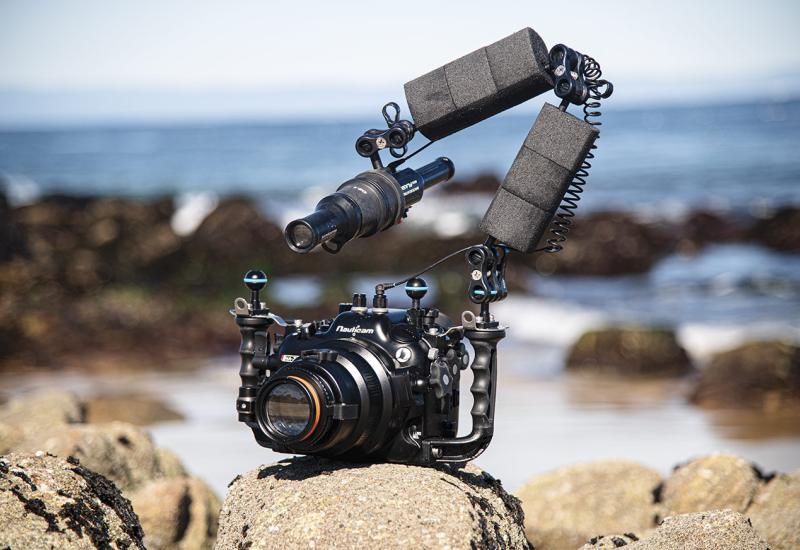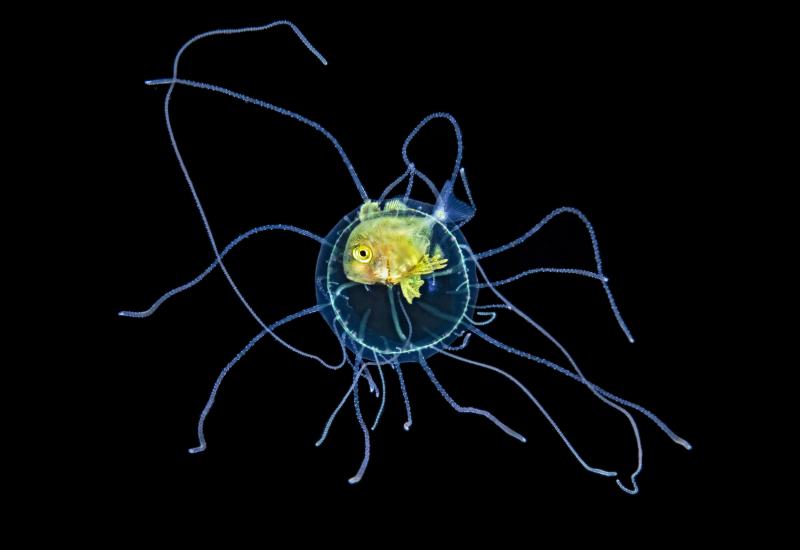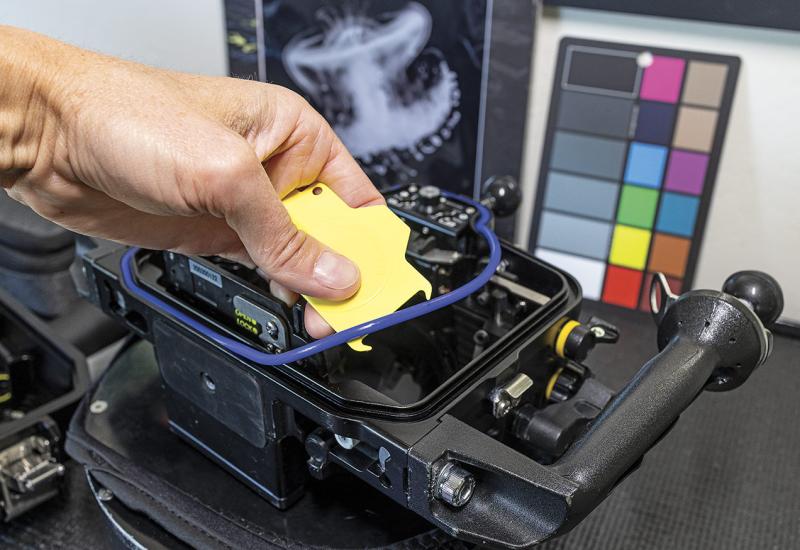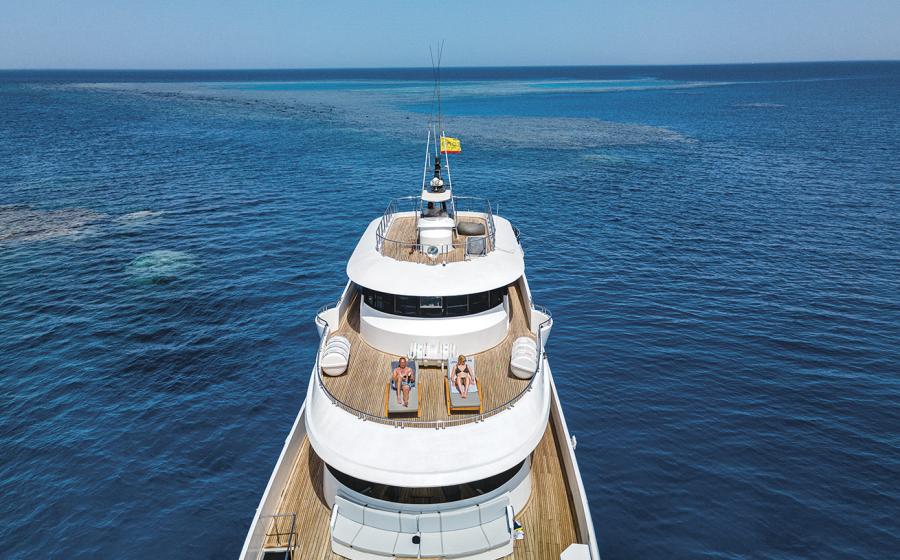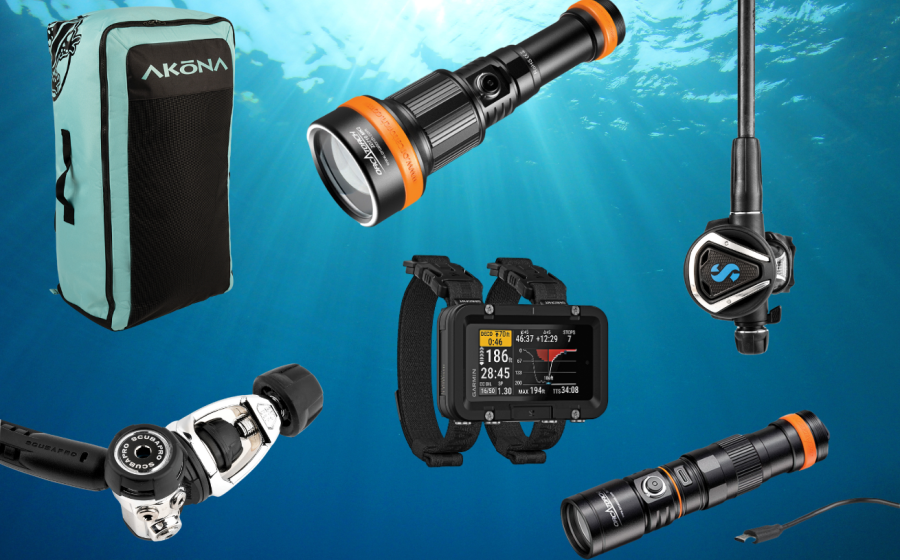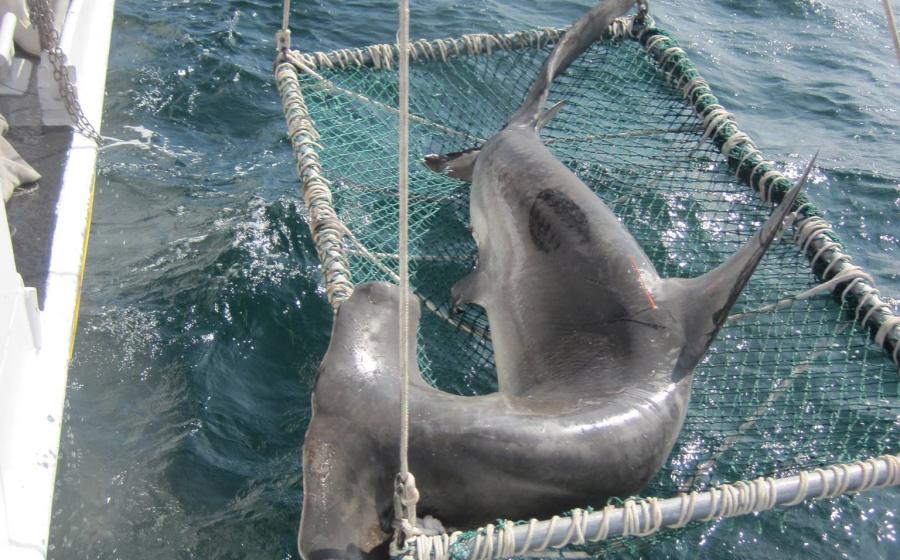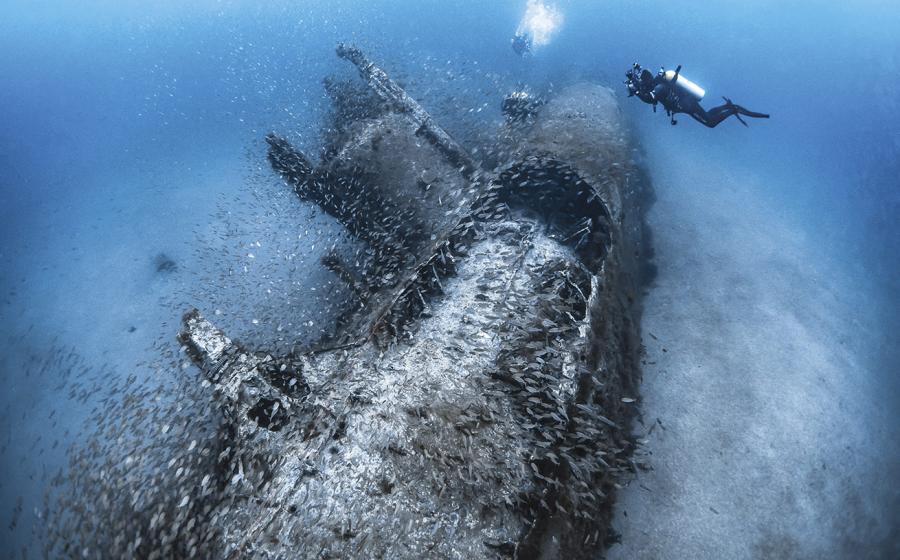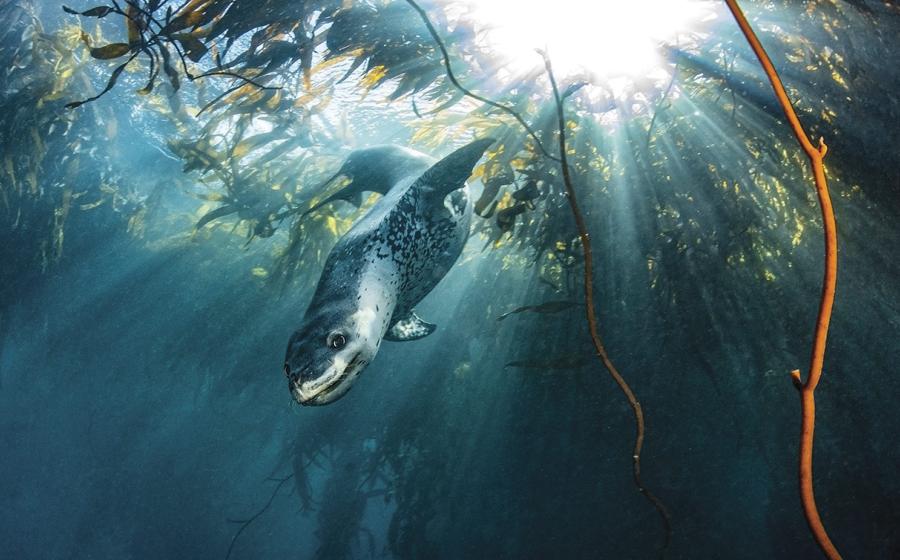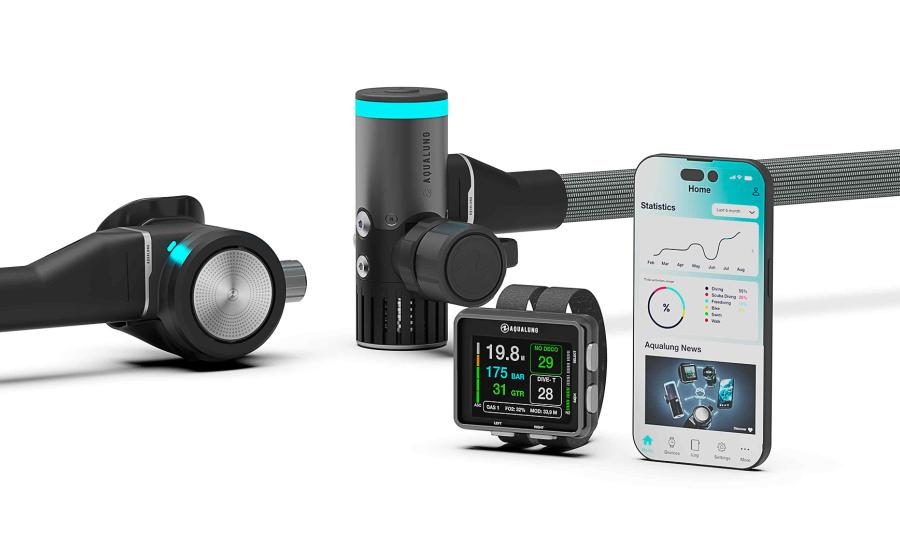How to Use Slow Shutter Speeds Underwater
There are many techniques you can use to add more creativity to your underwater photography portfolio. One of the easiest is incorporating slow shutter speeds to create a feeling of movement.
Like most photo techniques, slow shutter speeds will look great when used correctly, but look like a mistake when used incorrectly. The most important factor in creating a nice image is to use a strobe or flash to freeze the motion of the subject. Our slow shutter speed will result in blurry streaks of subject movement, but the bright strobe flash will create a crisp impression of the subject frozen in place by that burst of light. The combination of these two elements creates a compelling image.
Shutter Speed
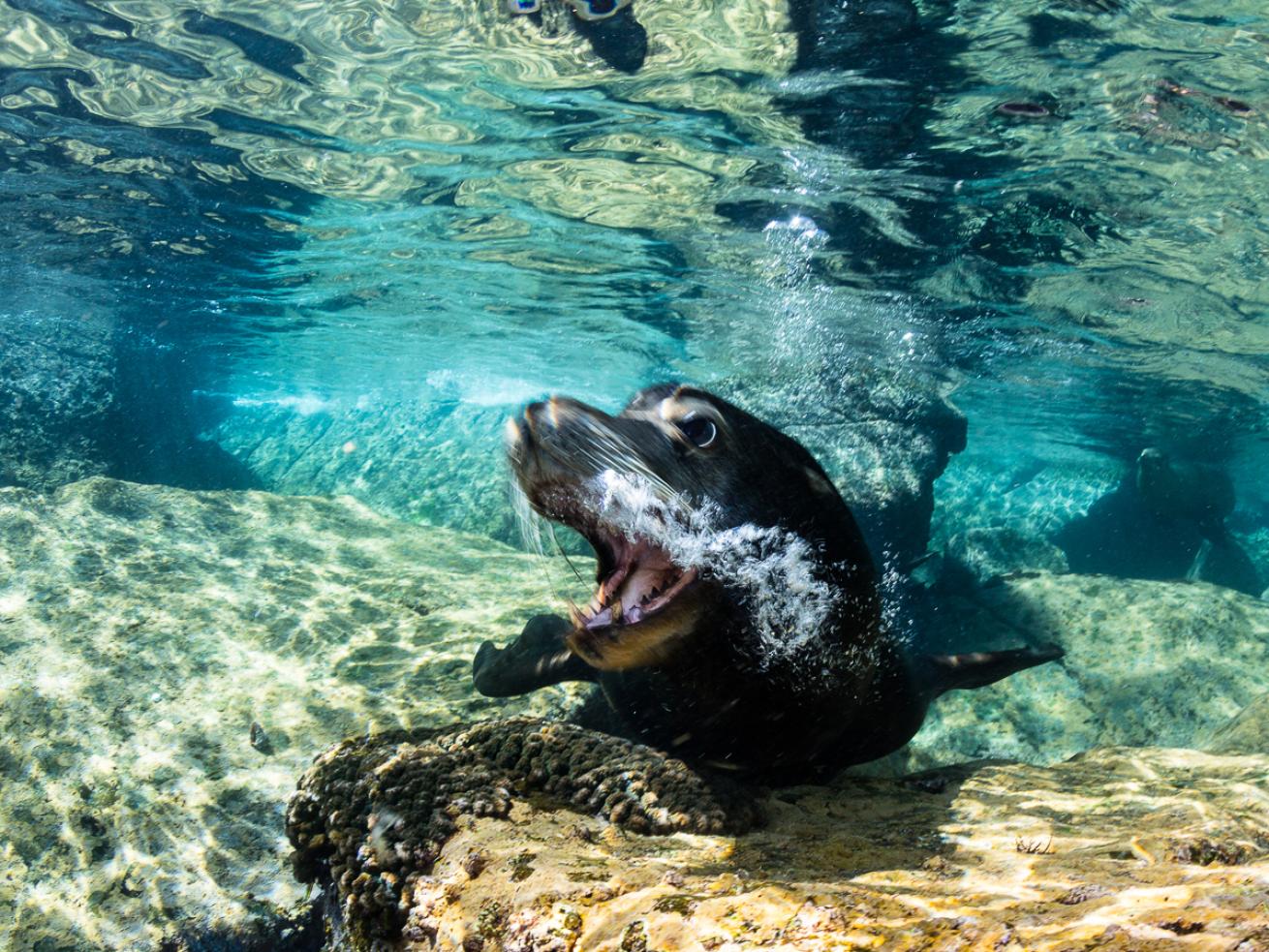
Brent DurandStrategic use of a slow shutter speed combined with strobe light can create a strong sense of movement, like this shot of a male sea lion.
The first step in creating slow shutter speed images is to determine the best shutter speed based on how much your subject is moving. For a very fast subject like a speeding sea lion, you may find that 1/40s creates the right amount of blur. For a slow subject like waving kelp, you may find that a very slow shutter speed of 1/6s looks best. The key is to experiment and find the best shutter speed for that subject.
Creating Movement
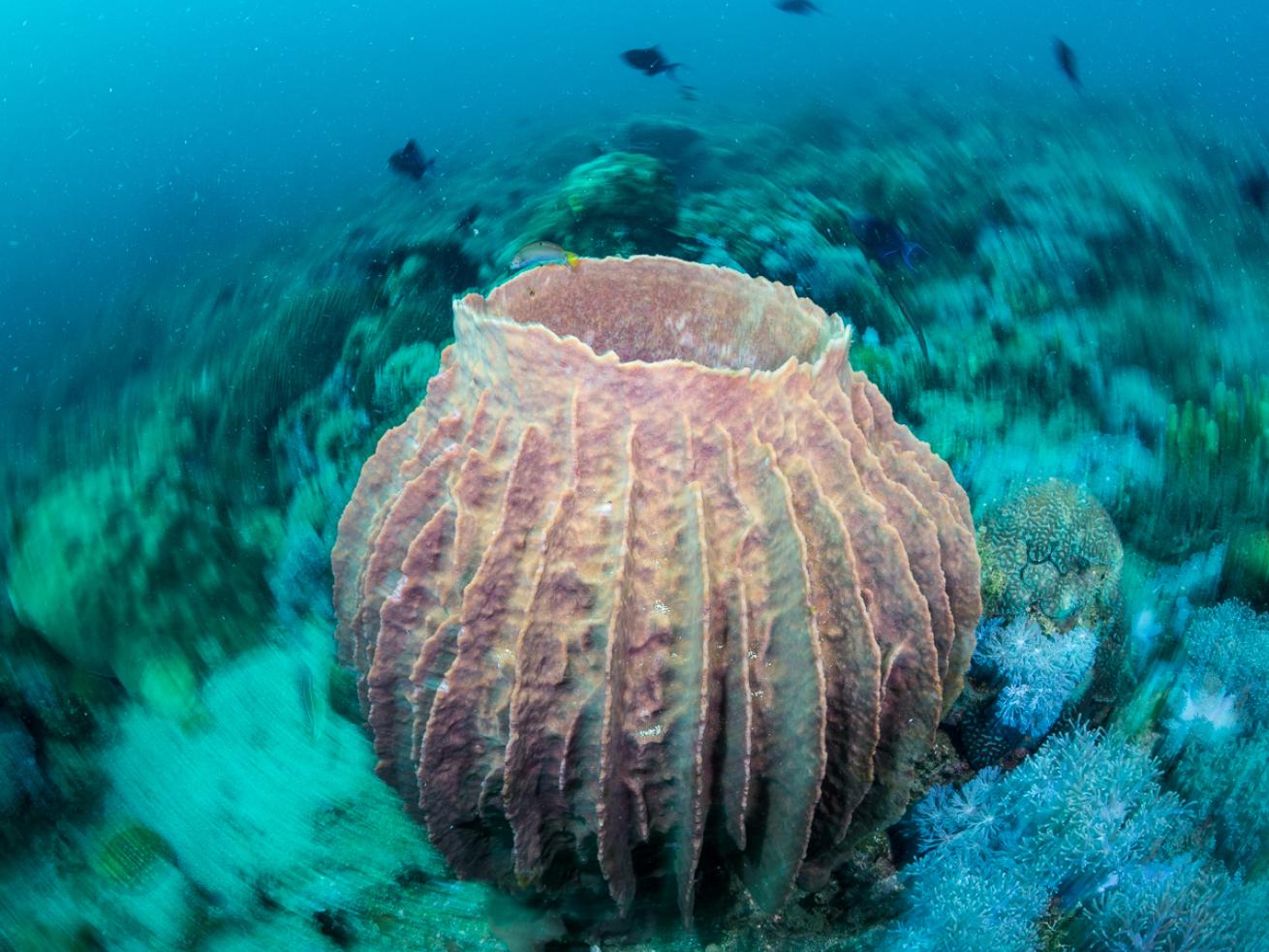
Brent DurandSlow shutter speeds can also be used to create a unique effect with static subjects. In this example, the camera is rotated, which makes the edges of the frame appear to rotate.
You can also create a sense of movement with stationary subjects like a starfish or barrel sponge on the reef. Simply twist your camera like a car steering wheel while pressing the shutter lever and you’ll see that the edges of the frame will blur in a circular fashion while the subject lit by the strobe will appear crisp and well lit.
A Note on Exposure
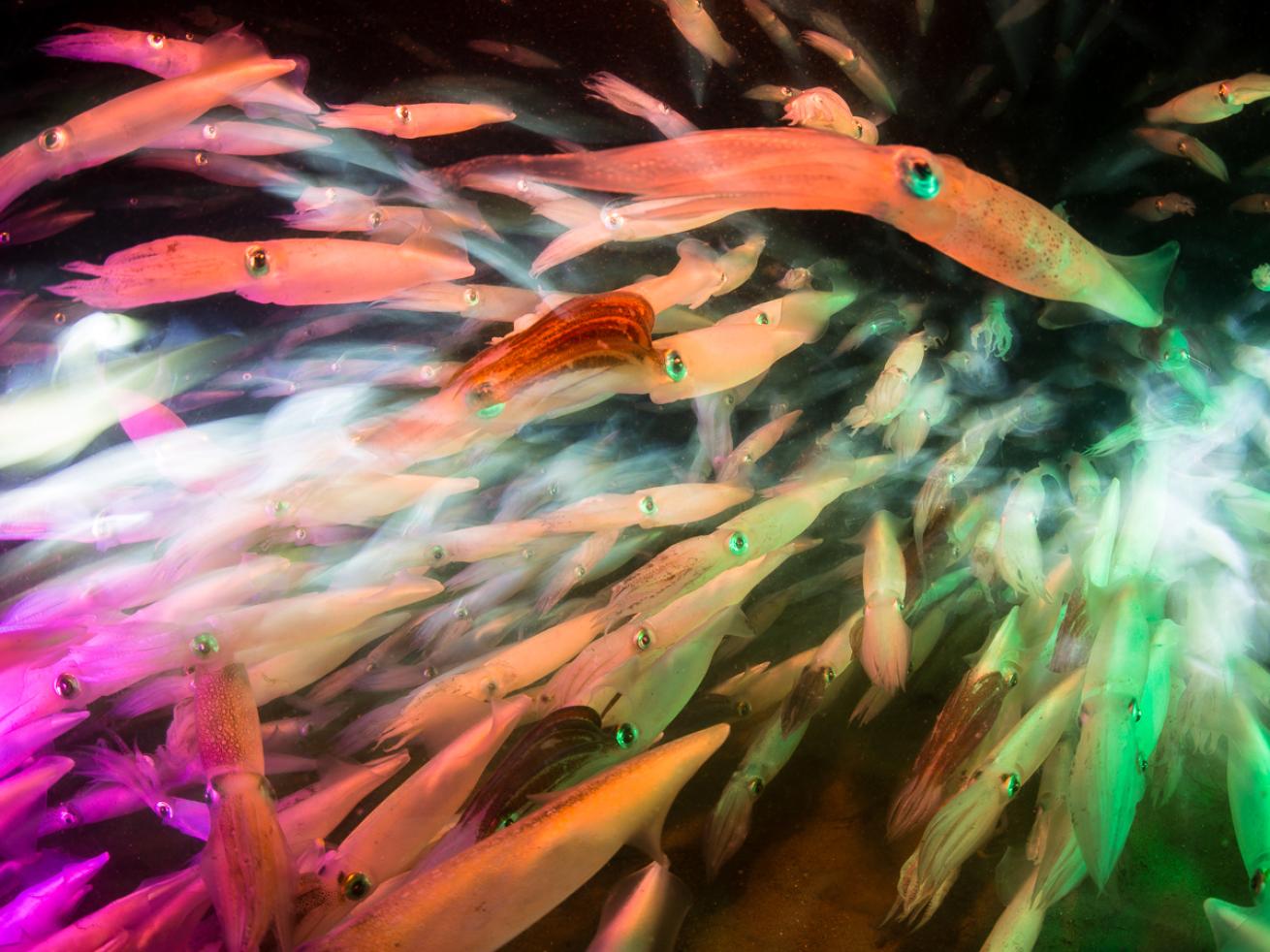
Brent DurandSlow shutter speeds open up a wide range of creative shooting possibilities. This shot combines a slow shutter speed, video lights at night, and strobes covered with colored gels. The effect feels like a disco party!
As underwater photographers, we know that if you have a properly exposed image and then adjust one exposure variable (like shutter speed), we will affect the overall exposure of the image.
Since we’re slowing down our shutter speed by several stops of light, we need to compensate for that by stopping down the aperture towards a higher number. This reduces the amount of light hitting the camera sensor while the shutter is open. If this isn’t enough, and if your ISO is above the minimum setting, lower your ISO to the minimum setting.
Finally, if you are shooting your strobe on manual power, you’ll likely need to reduce strobe power as well.
Shooting slow shutter speed photos is a lot of fun, and with some practice, you’ll be adding more WOW photos to your portfolio.
Brent Durand is a professional writer and underwater photo instructor. Find his in-depth video tutorial series at tutorials.brentdurand.com


